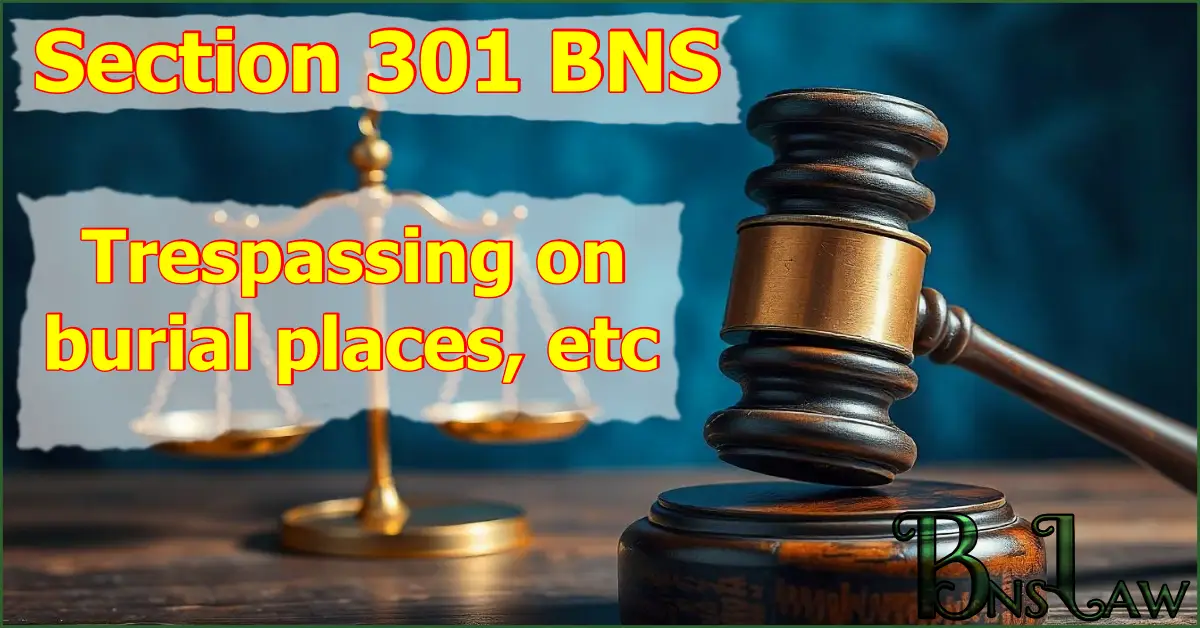Section 301 BNS | BNS 301
Whoever, with the intention of wounding the feelings of any person, or of insulting the religion of any person, or with the knowledge that the feelings of any person are likely to be wounded, or that the religion of any person is likely to be insulted thereby, commits any trespass in any place of worship or on any place of sepulchre, or any place set apart for the performance of funeral rites or as a depository for the remains of the dead, or offers any indignity to any human corpse, or causes disturbance to any persons assembled for the performance of funeral ceremonies,
shall be punished with imprisonment of either description for a term which may extend to one year, or with fine, or with both.
READ OTHER SECTIONS OF CHAPTER XVI — OF OFFENCES RELATING TO RELIGION
FAQs of BNS Section 301
-
301 BNS punishment and fine
Punishment and fine under Section 301 of the BNS: Imprisonment for 1 year, or fine, or both.
-
301 BNS cognizable or not
The offence under Section 301 of the BNS is cognizable.
-
301 BNS bailable or not
The offence under Section 301 of the BNS is bailable.
-
301 BNS trial court
Offence specified in Section 301 of the BNS is triable by any Magistrate.
Important Points
- Cognizable Offences: These are offences where a police officer can arrest a person without a warrant.
- Non-Cognizable Offences: These are offences where a police officer cannot arrest a person without a warrant.
- Bailable Offences: These are offences where the accused can get bail from the police station itself. All bailable offences are listed in the First Schedule of the Bharatiya Nagarik Suraksha Sanhita (BNSS).
- Non-Bailable Offences: Offences in which bail is not granted directly from the police station but after hearing the case in the court, the judge decides when bail will be granted. All non-bailable offences are listed in the first schedule of the Bharatiya Nagarik Suraksha Sanhita (BNSS).
- In the above FAQ, “trial court” means the court that has jurisdiction to try the offence.
- In the above FAQ, the expression “Magistrate of the first class” and “Any Magistrate” does not include Executive Magistrates.
Read other Sections of the BNS
Reference Link: New Criminal Laws (BNS), Ministry of Home Affairs







